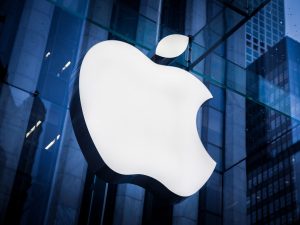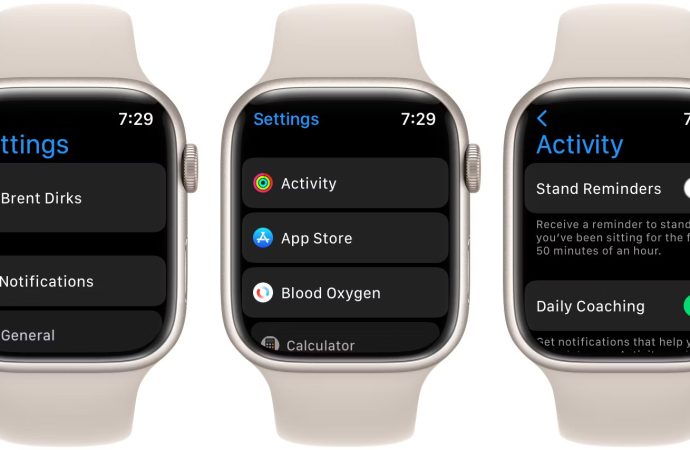Apple Watch Sales Ban: A Temporary Setback or a Permanent Threat? Introduction Hi, I’m Fred Wilson, a tech journalist and an avid Apple Watch user. I’ve been following Apple’s products and innovations for over a decade, and I’m always fascinated by how they shape the industry and the consumer behavior. In this article, I’m going
Apple Watch Sales Ban: A Temporary Setback or a Permanent Threat?
Introduction
Hi, I’m Fred Wilson, a tech journalist and an avid Apple Watch user. I’ve been following Apple’s products and innovations for over a decade, and I’m always fascinated by how they shape the industry and the consumer behavior. In this article, I’m going to share with you my insights on the recent Apple Watch sales ban in the US, and how it impacts Apple’s market share and revenue. I’ll also discuss the possible scenarios and strategies that Apple can employ to overcome this hurdle and maintain its leadership in the smartwatch market.
What is the Apple Watch sales ban?
The Apple Watch sales ban is a result of a patent infringement lawsuit filed by Masimo, a medical technology company, against Apple in 2020. Masimo claimed that Apple violated its patents related to light-based blood oxygen monitoring, a feature that Apple introduced with the Apple Watch Series 6 in 2020. Masimo also accused Apple of stealing its trade secrets and poaching its employees to develop the feature.
In October 2023, the US International Trade Commission (ITC) ruled in favor of Masimo and ordered Apple to stop selling the Apple Watch Series 9 and the Apple Watch Ultra 2, the latest models that have the blood oxygen monitoring feature, in the US. The sales ban took effect on December 26, 2023, unless President Biden intervened and vetoed the order. However, Biden did not take any action, and the sales ban remained in place.

Image by: https://attorneyatlawmagazine.com/
Apple strongly disagreed with the ITC’s ruling and appealed the decision in the US Court of Appeals for the Federal Circuit. Apple also sought a stay of the sales ban pending the appeal, but the ITC denied the request. Apple then asked the appeals court to grant a temporary relief from the sales ban, which the court granted on December 27, 2023. This allowed Apple to resume selling the Apple Watch Series 9 and the Apple Watch Ultra 2 in the US until the court decides on the appeal.
How does the Apple Watch sales ban affect Apple’s market share and revenue?
The Apple Watch sales ban is a significant blow to Apple’s market share and revenue, as the US is one of its largest and most profitable markets for the smartwatch. According to a report by Counterpoint Research, Apple had a 40% share of the global smartwatch market in the third quarter of 2023, followed by Samsung with 15% and Huawei with 10%. The US accounted for 35% of Apple’s smartwatch shipments in the same period, making it the biggest market for the Apple Watch.
The sales ban could cost Apple up to $3 billion in revenue in the fourth quarter of 2023, according to a Bloomberg analysis. This is based on the assumption that Apple would sell 10 million units of the Apple Watch Series 9 and the Apple Watch Ultra 2 in the quarter, with an average selling price of $400. The sales ban could also hurt Apple’s overall revenue growth, which was expected to reach 15% year-over-year in the quarter, according to analysts’ estimates.
The sales ban could also erode Apple’s competitive edge and customer loyalty in the smartwatch market, as consumers may switch to other brands or postpone their purchases until the issue is resolved. This could give an opportunity for Apple’s rivals, such as Samsung, Garmin, and Fitbit, to gain market share and attract new customers with their own smartwatch offerings.

Image by: https://media .CNN. com
What is Apple doing to overcome the Apple Watch sales ban?
Apple is not giving up on the Apple Watch sales ban, and is pursuing various legal and technical options to ensure that its smartwatch is available to customers in the US. Some of the possible scenarios and strategies that Apple can employ are:
- Winning the appeal: The most favorable outcome for Apple is to win the appeal and overturn the ITC’s ruling. This would allow Apple to continue selling the Apple Watch Series 9 and the Apple Watch Ultra 2 in the US without any restrictions. However, this could take months or even years, as the appeals process is complex and uncertain.
- Settling with Masimo: Another option for Apple is to settle with Masimo and reach a licensing agreement or a cross-licensing deal. This would enable Apple to use Masimo’s patents and avoid the sales ban. However, this could be costly and risky for Apple, as Masimo may demand high royalties or other concessions from Apple. Moreover, this could set a precedent for other patent holders to sue Apple for similar claims.
- Removing or modifying the feature: A third option for Apple is to remove or modify the blood oxygen monitoring feature from the Apple Watch Series 9 and the Apple Watch Ultra 2, and release new versions that do not infringe on Masimo’s patents. This would require Apple to redesign its hardware and software, and obtain regulatory approvals for the changes. This could also affect the functionality and performance of the smartwatch, and disappoint the customers who bought the original versions.
- Launching new models: A fourth option for Apple is to launch new models of the Apple Watch that do not have the blood oxygen monitoring feature, or have a different technology that does not violate Masimo’s patents. This would allow Apple to offer new products to the market and avoid the sales ban. However, this could also require Apple to invest more resources and time in research and development, and face the challenge of differentiating its new models from the existing ones.
Conclusion
The Apple Watch sales ban is a temporary setback for Apple, but not a permanent threat. Apple has the resources and the capabilities to overcome this challenge and maintain its leadership in the smartwatch market. Apple has a loyal customer base, a strong brand reputation, and a history of innovation and resilience. Apple also has a diversified product portfolio, and the smartwatch is not its only source of revenue and growth. Apple will likely find a way to resolve the patent dispute with Masimo, either through litigation or negotiation, and continue to offer its smartwatch to customers in the US and around the world.

















Leave a Comment
Your email address will not be published. Required fields are marked with *